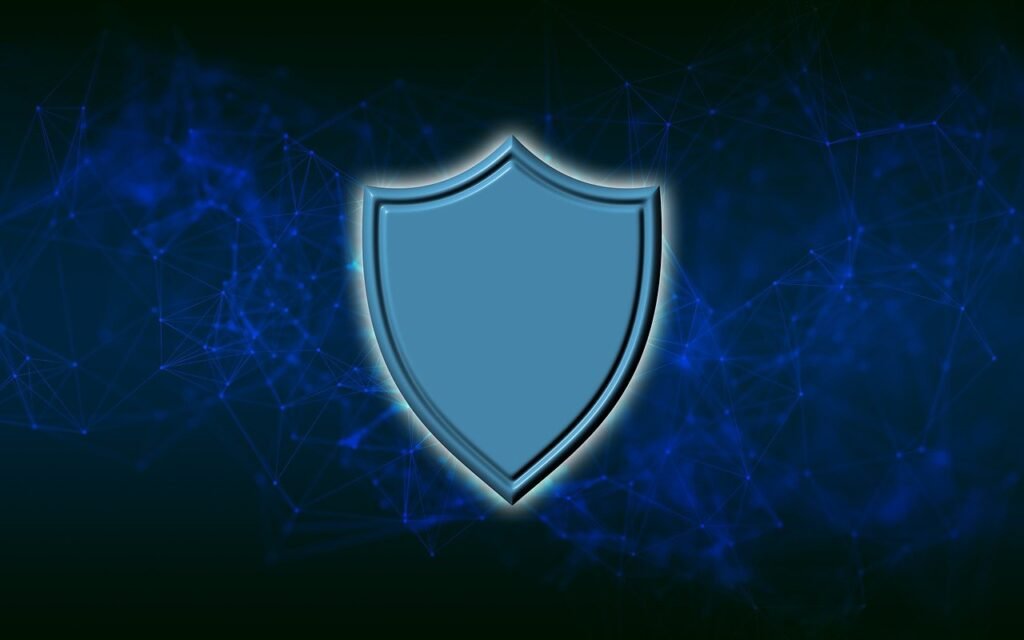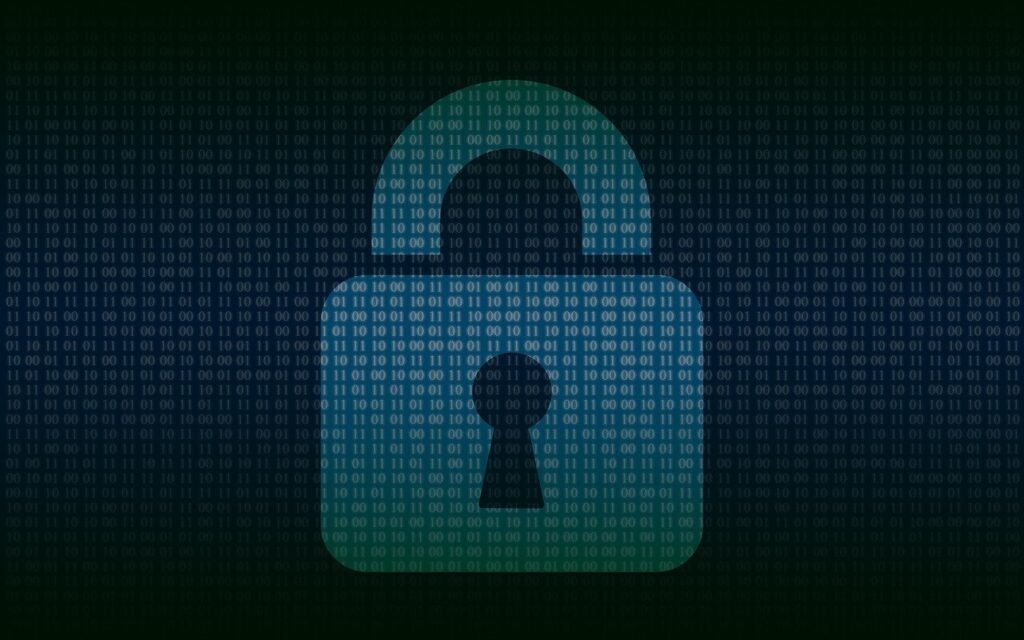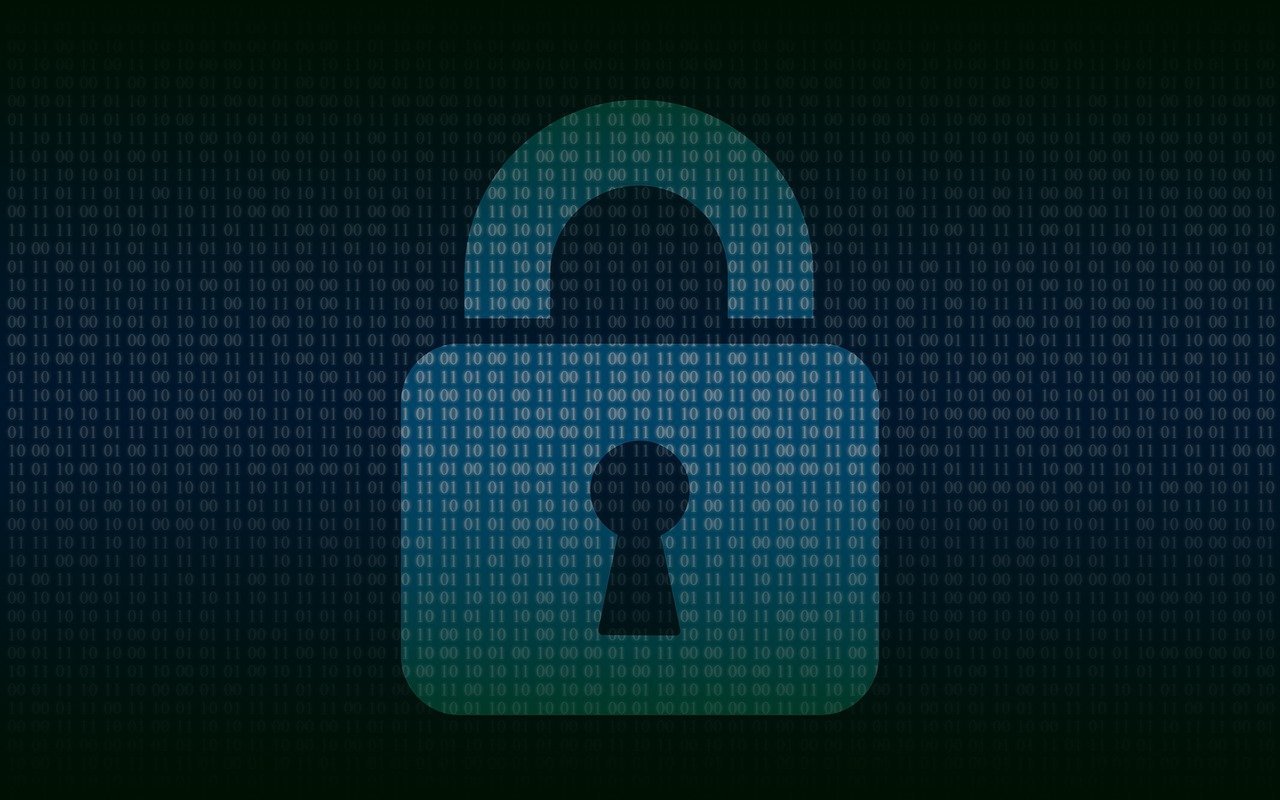In an age where our lives are increasingly intertwined with technology, it has become more important than ever to protect our valuable devices. The rapid advancements in laptop security have opened up a world of new possibilities, giving us the peace of mind we need. From biometric authentication to encrypted storage, these innovations are revolutionizing the way we safeguard our laptops. Discover the latest advancements in laptop security and how they can help keep your personal information safe and secure.

This image is property of pixabay.com.
Biometric authentication
In the age of technology, ensuring the security of our laptops and personal information has become increasingly important. One of the most exciting advancements in laptop security is biometric authentication. This cutting-edge technology allows users to access their laptops using unique physical characteristics, eliminating the need for traditional passwords or PINs. Let’s explore some of the popular biometric authentication methods available today.
Fingerprint recognition
Fingerprint recognition is a widely used biometric authentication method that has gained prominence in laptop security. By scanning and analyzing the pattern of ridges and valleys on your fingertip, your laptop can identify you with remarkable accuracy. Gone are the days of worrying about forgetting your password or someone else guessing it. With fingerprint recognition, all it takes is a quick swipe of your finger to unlock your laptop securely.
Facial recognition
Another innovative biometric authentication method is facial recognition. With this technology, your laptop’s camera captures and analyzes your unique facial features, such as the shape of your eyes, nose, and mouth, to verify your identity. The process is quick, seamless, and, most importantly, highly secure. By utilizing facial recognition, you can rest easy knowing that only you can access your laptop.
Iris scanning
Iris scanning is a highly advanced biometric authentication technique that has gained popularity in recent years. By capturing and analyzing your unique iris patterns, this method offers an exceptionally high level of security. Unlike facial recognition, iris scanning is not affected by changes in your appearance, such as growing a beard or wearing glasses. With a quick glance at your laptop’s camera, your iris can unlock a world of secure possibilities.
Encryption techniques
While biometric authentication provides a layer of security for accessing your laptop, encryption techniques take the protection of your data a step further. Encryption scrambles your data so that even if it falls into the wrong hands, it would be virtually impossible to decipher. Here are some commonly used encryption techniques that can help keep your laptop and personal information secure.
Full disk encryption
Full disk encryption (FDE) is a powerful technique that encrypts the entire hard drive, ensuring that every piece of data stored on it is protected. With FDE, even if your laptop is lost or stolen, your sensitive information will remain secure. This advanced encryption method requires you to enter a password or PIN during startup, unlocking the data and allowing you to use your laptop as normal.
File-level encryption
File-level encryption provides a more targeted approach to securing your data. With this technique, you can encrypt specific files or folders, granting an additional layer of protection to your most sensitive information. Whether it’s financial documents, personal photos, or confidential work files, file-level encryption ensures that only authorized individuals can access and view your data.
Secure Sockets Layer (SSL)
Secure Sockets Layer (SSL), also known as Transport Layer Security (TLS), is a widely used encryption protocol that secures the communication between your laptop and the websites you visit. By encrypting the data transmitted during online transactions, SSL protects your sensitive information, such as credit card details or login credentials, from falling into the wrong hands. When browsing the web, always look for the padlock symbol or “https” in the URL to ensure your connection is encrypted.
Physical security measures
While biometric authentication and encryption techniques can provide strong safeguards against unauthorized access to your laptop, physical security measures focus on protecting the physical device itself. Here are some effective physical security measures to consider:
Security cables and locks
Security cables and locks are simple yet effective tools to deter theft and unauthorized access to your laptop. These cables are designed to attach to a specially designed slot on your laptop, securing it to a fixed object such as a desk or table. By physically tethering your laptop, you significantly reduce the risk of it being stolen or accessed without your permission.
Kensington lock slot
Many laptops come equipped with a Kensington lock slot, which is a small hole in the chassis designed to accommodate a Kensington lock. A Kensington lock is a specialized cable that can be inserted into the lock slot and secured, preventing your laptop from being easily removed or stolen. This additional layer of physical security provides peace of mind, especially in public places or shared work environments.
Laptop tracking software
In case your laptop gets lost or stolen, installing laptop tracking software can greatly increase the chances of recovering it. These software solutions allow you to remotely locate your laptop using GPS or Wi-Fi signals and track its movements. Additionally, some tracking software offers features like remote locking and data wiping, ensuring that your sensitive information remains protected even if your laptop cannot be retrieved.
Antivirus and anti-malware software
Protecting your laptop from malicious software, such as viruses and malware, is essential to maintaining its security and overall performance. Antivirus and anti-malware software are designed to detect, prevent, and remove these threats. Here are some key features to look for in such software:
Real-time scanning
Real-time scanning is a crucial feature of antivirus and anti-malware software. It constantly monitors your system, files, and incoming data to detect and eliminate any potential threats promptly. By scanning files in real-time, these software solutions can prevent malware from infiltrating your laptop and causing harm.
Malicious website blocking
Malicious website blocking is another important feature offered by antivirus and anti-malware software. It works by analyzing website addresses and content in real-time, flagging and blocking any websites known to host malware or engage in malicious activities. By preventing you from accessing these websites, the software ensures that you don’t inadvertently expose your laptop to harmful threats.
Behavioral analysis
Some advanced antivirus and anti-malware software employ behavioral analysis to detect previously unknown threats. Instead of relying solely on pre-existing malware definitions, these solutions monitor the behavior of files and applications, identifying suspicious patterns or activities. By leveraging behavioral analysis, these software solutions can catch emerging threats that may not yet be recognized by traditional detection methods.

This image is property of pixabay.com.
Firewalls
Firewalls act as a protective barrier between your laptop and the internet, monitoring and controlling incoming and outgoing network traffic. They play a vital role in securing your laptop by filtering out potentially harmful connections and data. There are different types of firewalls to consider:
Network firewalls
Network firewalls are typically hardware devices or software programs that protect an entire network of connected devices, including your laptop. They examine incoming and outgoing network traffic based on predefined rules, allowing or blocking data packets accordingly. Network firewalls ensure that only authorized and safe connections are established, reducing the risk of unauthorized access or data breaches.
Host-based firewalls
Host-based firewalls are software programs that provide a dedicated firewall service on your individual laptop. These firewalls monitor and control the network traffic specific to your device, ensuring that only authorized applications and services have network access. Host-based firewalls complement network firewalls and offer an extra layer of protection, particularly when using public Wi-Fi networks or accessing the internet from untrusted sources.
Application firewalls
Application firewalls focus on monitoring and controlling the network traffic specific to individual applications running on your laptop. They provide additional protection by enforcing rules that dictate how the applications can interact with the network. By scrutinizing the communication between applications and the internet, application firewalls can prevent unauthorized access or data leakage.
Remote data wipe
Losing your laptop or having it stolen can be a distressing experience, not only because of the financial loss but also due to the potential compromise of personal and sensitive information. Remote data wipe solutions provide a way to protect your data in such unfortunate situations. Here are some common methods used for remote data wipe:
Cloud-based data wipe
Cloud-based data wipe solutions enable you to remotely erase the data on your laptop by utilizing cloud storage or backup services. These services provide a secure connection between your laptop and the cloud server, allowing you to initiate a data wipe command. Once the command is executed, all the data on your laptop is erased, ensuring that sensitive information doesn’t fall into the wrong hands.
Mobile device management platforms
Mobile device management (MDM) platforms are primarily designed for managing smartphones and tablets, but they can also be used to secure laptops. MDM platforms provide an array of security features, including remote data wipe capabilities. By enrolling your laptop into an MDM platform, you gain the ability to remotely wipe its data in case of loss or theft, protecting your information even if the laptop cannot be recovered.
Remote data wipe software
In addition to cloud-based solutions and MDM platforms, there are standalone software applications specifically designed for remote data wipe purposes. These applications provide a straightforward way to remotely erase the data on your laptop, ensuring that all sensitive information is permanently removed. Remote data wipe software typically requires you to establish a secure connection and execute the wipe command either through a dedicated interface or via remote administration tools.

This image is property of pixabay.com.
Secure login procedures
Creating strong and secure login procedures is essential to protect your laptop and personal information from unauthorized access. Here are some reliable methods to implement:
Two-factor authentication
Two-factor authentication (2FA) adds an extra layer of security to your login process by requiring two different forms of identification. This commonly involves something you know, such as a password, and something you have, such as a verification code sent to your smartphone. With 2FA enabled, even if someone were to obtain your password, they would still need the second factor to gain access to your laptop.
Single sign-on (SSO)
Single sign-on (SSO) streamlines the login process by enabling you to access multiple applications or services with a single set of login credentials. This method reduces the number of usernames and passwords you need to remember, making it easier to maintain strong and unique passwords for each application. By using SSO, you can enhance convenience while ensuring that your laptop remains secure.
Complex password requirements
Implementing complex password requirements is an effective way to enhance the security of your laptop. Strong passwords typically include a combination of uppercase and lowercase letters, numbers, and special characters. By enforcing these requirements, you make it more difficult for others to guess or brute-force their way into your laptop. Remember to avoid using easily guessable information such as birthdates or common words in your passwords.
Virtual Private Network (VPN)
When you connect your laptop to the internet, your data is susceptible to interception and surveillance. Virtual Private Networks (VPNs) offer a secure way to protect your online activities and maintain privacy. Here are some key advantages of using a VPN:
Encrypting internet traffic
VPNs encrypt your internet traffic, making it unreadable to anyone who intercepts it. This encryption ensures that even if someone manages to access your data, they won’t be able to decipher it without the encryption keys. By encrypting your internet traffic, VPNs provide a secure tunnel for your data to travel, protecting your sensitive information from potential snooping.
Bypassing geolocation restrictions
Some websites and online services restrict access based on your geolocation. However, with a VPN, you can bypass these restrictions by connecting to a server located in a different country or region. By effectively masking your true location, a VPN allows you to access content and services that may otherwise be unavailable to you.
Enhancing online privacy
In an era where online privacy is increasingly threatened, using a VPN can significantly enhance your privacy. VPNs hide your IP address, making it difficult for websites or advertisers to track your online activities. By maintaining anonymity, you can browse the internet with peace of mind, knowing that your online footprint is protected.
Secure browsing habits
Engaging in secure browsing habits is essential for maintaining the security of your laptop and personal information. By following these best practices, you can minimize the risk of falling victim to online threats:
Avoiding suspicious websites
One of the most important habits to develop is avoiding suspicious websites. These websites can harbor malware, phishing attempts, or other threats. Be cautious when clicking on unfamiliar links or visiting websites that seem suspicious or untrustworthy. Staying vigilant and using common sense can go a long way in protecting your laptop from potential online hazards.
Using HTTPS connections
When transmitting sensitive information, such as entering login credentials or making online purchases, always ensure that you use websites with HTTPS connections. These connections encrypt your data, ensuring that it cannot be intercepted or tampered with during transmission. Look for the padlock symbol or “https” in the URL address bar to verify the presence of a secure connection.
Regularly clearing browser cache
Clearing your browser cache regularly helps protect your privacy and prevent unauthorized access to your browsing history, stored passwords, and other sensitive information. Be sure to clear temporary internet files, cookies, and browsing history from your browser settings on a regular basis. This simple habit can help keep your laptop and personal information secure.
Backup and recovery solutions
No security strategy is complete without considering backup and recovery solutions. Accidents, hardware failures, or even ransomware attacks can result in the loss of your valuable data. By implementing backup and recovery solutions, you can protect your important files and easily restore them when needed. Here are some popular methods:
Cloud-based backup services
Cloud-based backup services provide an automated and secure way to back up your laptop’s data to remote servers. These services store your files off-site, ensuring that even if your laptop is lost, stolen, or damaged, your data remains safe. With cloud-based backup services, you can easily retrieve your files in case of data loss, offering peace of mind knowing that your important information is securely backed up.
External hard drives
Using an external hard drive is a reliable and straightforward method of backing up your laptop’s data. By regularly connecting an external hard drive to your laptop and making a backup of your files, you can have a local copy that is readily accessible. They also provide an additional layer of security by keeping your backup disconnected from the internet, reducing the risk of it being compromised.
Disk imaging software
Disk imaging software allows you to create a complete and exact copy of your laptop’s hard drive, including the operating system, applications, and personal files. This image can be stored on an external hard drive or network storage, enabling you to restore your laptop to its previous state in the event of data loss or system failure. Disk imaging software provides a comprehensive backup solution, ensuring that you can quickly recover from any unexpected incidents.
By understanding and implementing these laptop security developments, you can significantly enhance the protection of your laptop and personal information. Whether it’s utilizing biometric authentication, encryption techniques, physical security measures, or following secure browsing habits, prioritizing your laptop’s security is essential in today’s digital landscape. Take the necessary steps to safeguard your laptop, and enjoy the peace of mind that comes with knowing your data is secure.
